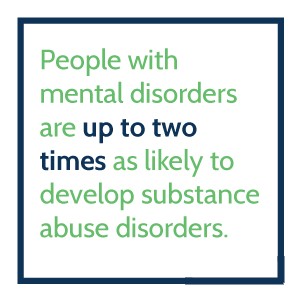World Bipolar Day Importance, Awareness, Causes, Symptoms & Treatment Options
“For those living with bipolar disorder, World Bipolar Day offers an opportunity to connect with others as well as help in gaining access to valuable resources and relationships that can improve their lives through treatment.” – International Society for Bipolar Disorders
The Importance of World Bipolar Day
The vision of World Bipolar Day (WBD) is to bring world awareness to bipolar conditions and to eliminate social stigma. Through international collaboration, the goal of World Bipolar Day is to bring the world population information about bipolar conditions that will educate and improve sensitivity towards the condition.
World Bipolar Day will be celebrated each year on March 30th, the birthday of Vincent Van Gogh, who was posthumously diagnosed as probably having a bipolar condition. WBD is an initiative of the International Bipolar Foundation (IBPF) in collaboration with the Asian Network of Bipolar Disorder (ANBD) and the International Society for Bipolar Disorders (ISBD). [3]
For those living with bipolar disorder, World Bipolar Day offers an opportunity to connect with others as well as assistance in gaining access to valuable resources and relationships that can improve their lives through treatment.
Living with bipolar disorder may not be easy, but as van Gogh, himself once said: “The beginning is perhaps more difficult than anything else, but keep heart, it will turn out all right.”
What is Bipolar Disorder?
Bipolar disorder (formerly called manic-depressive illness or manic depression) is a mental disorder that causes unusual shifts in mood, energy, activity levels, concentration, and the ability to carry out day-to-day tasks.
There are three types of bipolar disorder. All three types involve clear changes in mood, energy, and activity levels. These moods range from periods of extremely “up,” elated, irritable, or energized behavior (known as manic episodes) to very “down,” sad, indifferent, or hopeless periods (known as depressive episodes). Less severe manic periods are known as hypomanic episodes.
- Bipolar II Disorder— defined by a pattern of depressive episodes and hypomanic episodes, but not the full-blown manic episodes that are typical of Bipolar I Disorder.
- Cyclothymic Disorder (also called Cyclothymia)— defined by periods of hypomanic symptoms as well as periods of depressive symptoms lasting for at least 2 years (1 year in children and adolescents). However, the symptoms do not meet the diagnostic requirements for a hypomanic episode and a depressive episode. [1]


Get Your Life Back
Find Hope & Recovery. Get Safe Comfortable Detox, Addiction Rehab & Dual Diagnosis High-Quality Care.
Hotline(844) 597-1011Is Bipolar Disorder Genetic?
The inheritance pattern of bipolar disorder is unclear. Overall, the risk of developing this condition is greater for first-degree relatives of affected individuals (such as siblings or children) as compared to the general public. For unknown reasons, the risk of inheriting the disorder appears to be higher in some families than in others. However, most people who have a close relative with bipolar disorder will not develop the condition themselves. [2]
Many individuals with bipolar disorder have relatives with other mood disorders like anxiety, and psychotic disorders (such as depression or schizophrenia). These disorders may run in families in part because they share some genetic risk factors with bipolar disorder. However, these conditions are relatively common in the general population, and so it would not be surprising to see more than one case in a family just by chance.
What Causes Bipolar Disorder?
Researchers are studying the possible causes of bipolar disorder. Most agree that there is no single cause and it is likely that many factors contribute to a person’s chance of having the illness.
Brain Structure and Functioning: Some studies indicate that the brains of people with bipolar disorder may differ from the brains of people who do not have bipolar disorder or any other mental disorder. Learning more about these differences may help scientists understand bipolar disorder and determine which mental health treatments will work best. At this time, health care providers base the diagnosis and treatment plan on a person’s symptoms and history, rather than brain imaging or other diagnostic tests.
Genetics: Some research suggests that people with certain genes are more likely to develop bipolar disorder. Research also shows that people who have a parent or sibling with bipolar disorder have an increased chance of having the disorder themselves. Many genes are involved, and no one gene can cause the disorder. Learning more about how genes play a role in bipolar disorder may help researchers develop new treatments.
Bipolar Disorder Symptoms
Sometimes a person might experience symptoms of bipolar disorder that do not match the three categories or types of bipolar, which is referred to as “other specified and unspecified bipolar and related disorders.”
Bipolar disorder is typically diagnosed during late adolescence (teen years) or early adulthood. Occasionally, bipolar symptoms can appear in children. Bipolar disorder can also first appear during a woman’s pregnancy or following childbirth. Although the symptoms may vary over time, bipolar disorder usually requires lifelong treatment. Following a prescribed treatment plan can help people manage their symptoms and improve their quality of life.
People with bipolar disorder experience periods of unusually intense emotion, changes in sleep patterns and activity levels, and uncharacteristic behaviors—often without recognizing their likely harmful or undesirable effects. These distinct periods are called “mood episodes.” Mood episodes are very different from the moods and behaviors that are typical for the person. During an episode, the symptoms last every day for most of the day. Episodes may also last for longer periods, such as several days or weeks.
Get Help. Get Better. Get Your Life Back.
Searching for Accredited Drug and Alcohol Rehab Centers Near You?
Even if you have failed previously and relapsed, or are in the middle of a difficult crisis, we stand ready to support you. Our trusted behavioral health specialists will not give up on you. When you feel ready or just want someone to speak to about therapy alternatives to change your life call us. Even if we cannot assist you, we will lead you to wherever you can get support. There is no obligation. Call our hotline today.
(844) 597-1011People having a manic episode may:
- Feel very “up,” “high,” elated, or irritable or touchy
- Feel “jumpy” or “wired”
- Have a decreased need for sleep
- Have a loss of appetite
- Talk very fast about a lot of different things
- Feel like their thoughts are racing
- Think they can do a lot of things at once
- Do risky things that show poor judgment, such as eat and drink excessively, spend or give away a lot of money, or have reckless sex
- Feel like they are unusually important, talented, or powerful
People having a depressive episode may:
- Feel very sad, “down,” empty, worried, or hopeless
- Feel slowed down or restless
- Have trouble falling asleep, wake up too early, or sleep too much
- Experience increased appetite and weight gain
- Talk very slowly, feel like they have nothing to say, forget a lot
- Have trouble concentrating or making decisions
- Feel unable to do even simple things
- Have little interest in almost all activities, a decreased or absent sex drive, or an inability to experience pleasure (“anhedonia”)
- Feel hopeless or worthless, think about death or suicide

Sometimes people experience both manic and depressive symptoms in the same episode. This kind of episode is called an episode with mixed features. People experiencing an episode with mixed features may feel very sad, empty, or hopeless, while, at the same, time feeling extremely energized.
A person may have bipolar disorder even if their symptoms are less extreme. For example, some people with bipolar disorder (Bipolar II) experience hypomania, a less severe form of mania.
During a hypomanic episode, a person may feel very good, be able to get things done and keep up with day-to-day life. The person may not feel that anything is wrong, but family and friends may recognize the changes in mood or activity levels as possible bipolar disorder. Without proper treatment, people with hypomania can develop severe mania or depression.
Bipolar Disorder Treatment
Proper diagnosis and treatment can help people with bipolar disorder lead healthy and active lives. Talking with a doctor or other licensed health care provider is the first step. The health care provider can complete a physical exam and order necessary medical tests to rule out other conditions. The health care provider may then conduct a mental health evaluation or provide a referral to a trained mental health care provider, such as a psychiatrist, psychologist, or clinical social worker who has experience in diagnosing and treating bipolar disorder.
Treatments and Therapies
Treatment can help many people, including those with the most severe forms of bipolar disorder. An effective treatment plan usually includes a combination of medication and psychotherapy, also called “talk therapy.”
Bipolar disorder is a lifelong illness. Episodes of mania and depression typically come back over time. Between episodes, many people with bipolar disorder are free of mood changes, but some people may have lingering symptoms. Long-term, continuous treatment can help people manage these symptoms.
Psychotherapy
Psychotherapy, also called “talk therapy,” can be an effective part of the treatment plan for people with bipolar disorder. Psychotherapy is a term for a variety of treatment techniques that aim to help a person identify and change troubling emotions, thoughts, and behaviors. It can provide support, education, and guidance to people with bipolar disorder and their families. Treatment may include therapies such as cognitive-behavioral therapy (CBT) and psychoeducation, which are used to treat a variety of conditions.
First-class Facilities & Amenities
World-class High-Quality Addiction & Mental Health Rehabilitation Treatment
Rehab Centers TourRenowned Addiction Centers. Serene Private Facilities. Inpatient rehab programs vary.
Addiction Helpline(844) 597-1011Proven recovery success experience, backed by a Team w/ History of:
15+
Years of Unified Experience
100s
5-Star Reviews Across Our Centers
10K
Recovery Success Stories Across Our Network
- Low Patient to Therapist Ratio
- Onsite Medical Detox Center
- Comprehensive Dual-Diagnosis Treatment
- Complimentary Family & Alumni Programs
- Coaching, Recovery & Personal Development Events
Bipolar Disorder Medications
Certain medications can help manage symptoms of bipolar disorder. Some people may need to try several different medications and work with their health care provider before finding medications that work best.
Medications generally used to treat bipolar disorder include mood stabilizers and second-generation (“atypical”) antipsychotics. Treatment plans may also include medications that target sleep or anxiety. Health care providers often prescribe antidepressant medication to treat depressive episodes in bipolar disorder, combining the antidepressant with a mood stabilizer to prevent triggering a manic episode.

People taking medication should:
- Talk with their health care provider to understand the risks and benefits of the medication.
- Tell their health care provider about any prescription drugs, over-the-counter medications, or supplements they are already taking.
- Report any concerns about side effects to a health care provider right away. The health care provider may need to change the dose or try a different medication.
- Remember that medication for bipolar disorder must be taken consistently, as prescribed, even when one is feeling well.
Avoid stopping a medication without talking to a health care provider first. Suddenly stopping a medication may lead to a “rebound” or worsening of bipolar disorder symptoms.
How Does Bipolar Disorder Affect Family & Friends
The treatment of bipolar disorder is difficult by itself, but when coupled with OCD or other conditions, such as substance abuse, it becomes extremely difficult. One of the keys to your survival as a caregiver is to see bipolar disorder as a disease of the brain, not just a mental illness. Be angry at the disease, the illness, and not the person who is afflicted.
Bipolar disorder can impact families in the following ways:
- Emotional distress such as guilt, grief, and worry
- Disruption in regular routines
- Having to deal with unusual or dangerous behavior
- Financial stresses as a result of reduced income or excessive spending
- Strained marital or family relationships
- Changes in family roles
- Difficulty in maintaining relationships outside the family
- Health problems as a result of stress
Your perception is that you have no control over the situation. That is true, but you have power, the power to advocate for their right to receive the care they require from their medical team. Use that power and you can provide the emotional support they need to fight the fight. Remain consistent in how you relate to your significant other, which is most difficult when you find yourself under constant stress.
What Families Can Do
- Educate yourself about the illness
- Support your family member to manage their illness
- Believe in them, especially in times when they may not believe in themselves
- Continue to love them even when you want to give up
World-class, Accredited, 5-Star Reviewed, Effective Addiction & Mental Health Programs. Complete Behavioral Health Inpatient Rehab, Detox plus Co-occuring Disorders Therapy.
CALL(844) 597-1011End the Addiction Pain. End the Emotional Rollercoaster. Get Your Life Back. Start Drug, Alcohol & Dual Diagnosis Mental Health Treatment Now. Get Free No-obligation Guidance by Substance Abuse Specialists Who Understand Addiction & Mental Health Recovery & Know How to Help.
How to Help Someone with Bipolar Disorder
Family and friends can make a big difference on World Bipolar Day in helping their loved ones living with bipolar disorder by developing a better understanding and response to bipolar episodes. Some tips include developing skills to manage stressful situations, supporting participation in treatment, and proactively developing action plans for the future.
Below is a list of things to keep in mind if you are a friend or family member of someone living with Bipolar Disorder:
- Individuals and families can learn about bipolar disorder from trusted reliable sources.
- Support participation in treatment.
- When a person is depressed or manic, they may not act like their normal selves and may need extra patience and attention.
- Work with your loved one to create a plan that supports them when things are not going well. Types of plans to consider are a Psychiatric Advance Directive and a Suicide Safety Plan.
- Try to listen without judgment and facilitate participation in treatment.
- Find support for the whole family.
Stay hopeful! Bipolar Disorder is a disease that can be managed successfully. A comprehensive set of supports that includes medication, therapy, and the support of family and friends can be a valuable source of hope that is important for long-term recovery.

In a study of people with bipolar disorder, approximately 60% had some history of substance abuse.
Although it’s not fully understood why, bipolar disorder makes people more likely to abuse drugs and alcohol. Drugs and alcohol often make the symptoms of bipolar disorder worse. People with no history of mental health issues may also develop bipolar disorder as a result of drug abuse. [4]
Receive treatment for co-occurring disorders today.
As the addiction treatment community begins to realize that addiction is itself a mental disorder, the relationship between substance abuse and mental disorders becomes more complicated. The greater treatment community largely lacks a proper understanding of dual diagnosed conditions, so these conditions are still treated separately, or worse–not treated or diagnosed at all. Our dual diagnosis treatment centers in We Level Up Florida, California, Texas, New Jersey are some of the facilities that have professionals trained to help treat co-occurring disorders concurrently. This type of tandem treatment provides some of the best success rates.
In support of the World Bipolar Day goal, there are many ways you can celebrate and join — and the people who live with this condition. Need help? Contact 24 Hour We Level Up Rehab Helpline. There’s No Obligation. Calls Are 100% Confidential.
Experience Transformative Recovery at We Level Up Treatment Centers.
See our authentic success stories. Get inspired. Get the help you deserve.
Start a New Life
Begin with a free call to an addiction & behavioral health treatment advisor. Learn more about our dual-diagnosis programs. The We Level Up Treatment Center Network delivers recovery programs that vary by each treatment facility. Call to learn more.
- Personalized Care
- Caring Accountable Staff
- World-class Amenities
- Licensed & Accredited
- Renowned w/ 100s 5-Star Reviews
We’ll Call You
Sources:
[1] Bipolar Disorder – National Institute of Mental Health
[2] Bipolar Disorder – U.S. Department of Health and Human Services National Institutes of Health
[3] World Bipolar Day – https://ibpf.org/learn/programs/world-bipolar-day/
[4] Substance abuse in bipolar disorder – National Center for Biotechnology Information


